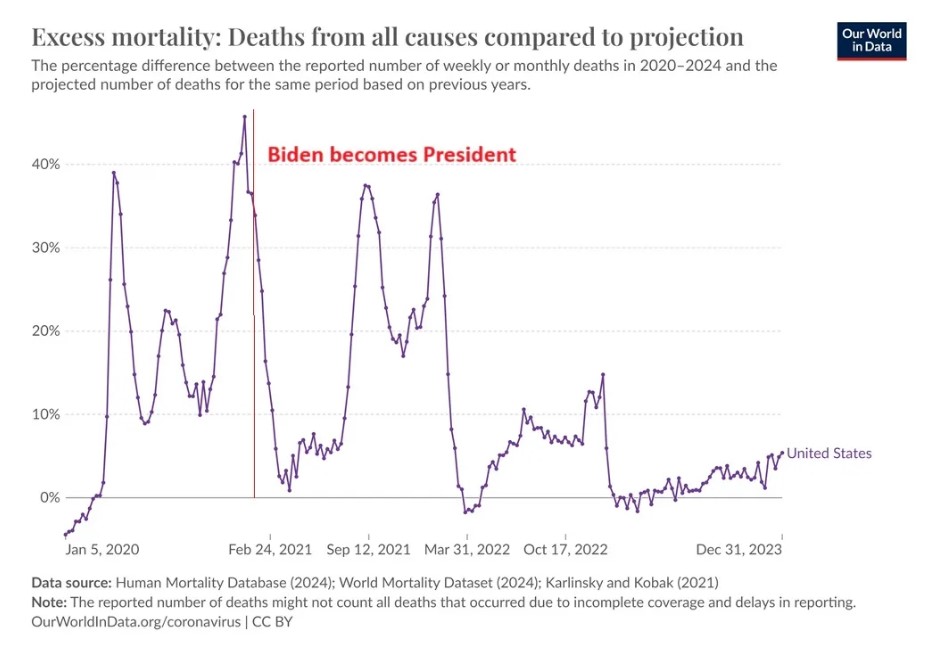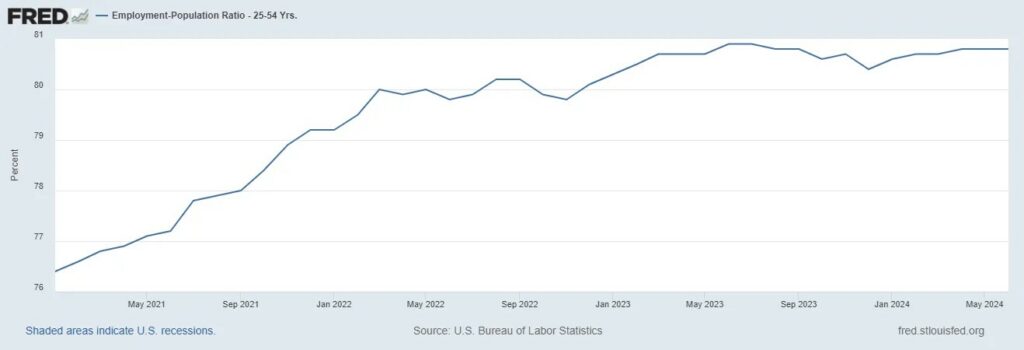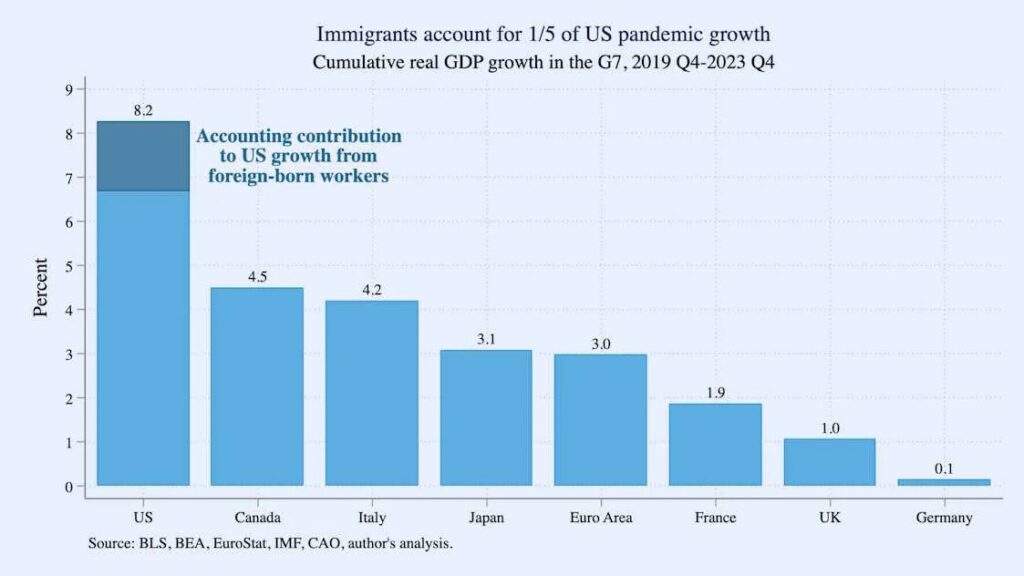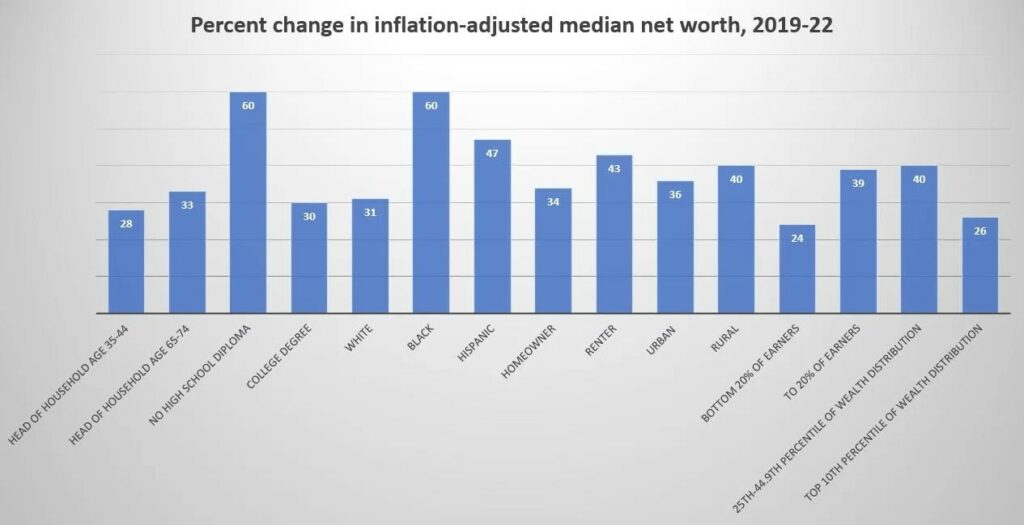Biden’s legacy: a Summary by Noah Smith – an introduction to Noahpinion Noahpinion Joe Biden announced today that he won’t seek reelection for President. We don’t yet know who will replace him, but we know Biden’s tenure in office will soon end. Now is the perfect time to talk about Biden’s legacy as America’s 46th President. How Presidents are judged by history is a complicated question, and I don’t have much confidence in my ability to predict how the country will remember Joe Biden. But I do have lots of thoughts on how he should be remembered. Basically, I see his policy legacy as a mostly positive one, but I think his political legacy could leave his party in a weaker position going forward. So I’m going to go through nine
Topics:
Angry Bear considers the following as important: Joe Biden, politics, US EConomics
This could be interesting, too:
Robert Skidelsky writes Lord Skidelsky to ask His Majesty’s Government what is their policy with regard to the Ukraine war following the new policy of the government of the United States of America.
NewDealdemocrat writes JOLTS revisions from Yesterday’s Report
Joel Eissenberg writes No Invading Allies Act
Ken Melvin writes A Developed Taste
Biden’s legacy: a Summary
by Noah Smith – an introduction to Noahpinion
Noahpinion
Joe Biden announced today that he won’t seek reelection for President. We don’t yet know who will replace him, but we know Biden’s tenure in office will soon end. Now is the perfect time to talk about Biden’s legacy as America’s 46th President.
How Presidents are judged by history is a complicated question, and I don’t have much confidence in my ability to predict how the country will remember Joe Biden. But I do have lots of thoughts on how he should be remembered. Basically, I see his policy legacy as a mostly positive one, but I think his political legacy could leave his party in a weaker position going forward.
So I’m going to go through nine major challenges that Biden faced as President and give my assessment of how he handled each one. I’ll start with economic issues and then move on to foreign policy, social policy, and politics.
AB: With that being said, Noah gives Bears a freebie and discusses the Covid and Economic Recovery. It is well stated and a good read. Being retired does not allow me too to spend too much even if I wish to have it on my reading list.
- Covid and the economic recovery
- Manufacturing and industrial policy
- Inflation and deficits
- Afghanistan
- Ukraine
- China
- Immigration and the border
- Crime and social policy
- Party politics and elections
That’s a long list, so let’s get right into it.
Covid and the economic recovery
It’s difficult to remember now, but when Biden took over as President, Covid was still rampaging through the country. Of the approximately 1.2 million Americans who died from the pandemic, more than half died after Biden took over:
The economy was starting to recover, but was still in a fairly deep hole, with the prime-age employment rate at only 76.4% when Biden took over (as opposed to 80.8% now).
It’s hard to remember this now, with the economy humming along and Covid reduced to a chronic annoyance. But when Biden came to power, these were the two big challenges facing the country.
Biden handled the challenge of the pandemic extremely well. Vaccines were developed under Trump, but they were distributed under Biden. In the early days, the U.S.’ vaccination effort was world-beating — we were able to manufacture huge amounts of the world’s best vaccines without a hitch, and roll them out extremely rapidly to anyone who wanted one.
It was only once we reached the limit of the number of people who were willing to take the vaccine that we fell short of other countries’ vaccination rates. And I don’t think there’s any way you can blame Biden for the antivax movement.
Biden was also personally instrumental in moving the country past the pandemic psychologically. There’s no official hard-and-fast definition for when a pandemic ends — some people still get H1N1 flu, AIDS, and other viruses that rampaged many years ago. Although we mostly ignore them now, there are some Covid dead-enders within the progressive movement who would have had us continue social distancing, masking, and other pandemic-era policies indefinitely. It was Biden who stood up and said the words “The pandemic is over”, and took off his mask. It took a Democrat to say those words in a way that most progressives would believe. In a very real sense, that was the moment the pandemic ended.
As for the economic recovery, it’s notable that even without the impact of its higher immigration rates, the U.S. left other advanced countries in the dust since the pandemic:
Source: Ernie Tedeschi
The recovery from the Great Recession took the U.S. nine years. We recovered from the Covid shock in just two.
And unlike the recoveries from the last few recessions, this recovery saw America’s lower-wage workers gain much more than the people at the top of the distribution. And wealth rose across the board, especially for less-educated people, young people, rural people, and minorities:
This is a singular accomplishment. We often take it for granted — just as Americans tend to take every positive development for granted — that the economy would just bounce back during Covid. But if we paid attention to the world beyond our borders, we’d see that most other countries (including China) didn’t bounce back — they’ve taken a long-term hit from the pandemic years, and America hasn’t. .
We don’t know exactly why the U.S. did so uniquely well — with macroeconomics, we never do. Some of the credit has to go to Trump and Congress during the pandemic — the CARES Act provided a uniquely generous cushion of cash that prevented people from being financially ruined in 2020, and in 2021 they came out and spent this cash and boosted the economy back to full employment.
But Biden certainly gets some of the credit too, because his American Rescue Plan was almost as large as the CARES Act. Biden put even more cash into Americans’ pockets, which they also went out and spent. That certainly helped speed the recovery from the pandemic recession even more.
Unfortunately, this also came at a price: government budget deficits and the highest inflation in four decades.
Inflation and deficits
Basic macroeconomic theory says that when the government does a lot of deficit spending and the Fed keeps interest rates low, inflation will rise. That appears to be exactly what happened in the U.S. pandemic recovery. The CARES Act didn’t immediately raise inflation, but it put a lot of cash in Americans’ bank accounts, and when they came out and spent it, that probably pushed prices up. The same is true of Biden’s American Rescue Plan, except that people probably spent the cash right away instead of waiting.
Just how much Biden’s policies were responsible for inflation is an open question that economists debate a lot. A temporary oil and food price shock in 2022, from the start of the Ukraine war, also contributed, as did the snarling of supply chains in the pandemic. Whether the ARP’s effect on inflation was an acceptable price to pay for the ARP’s additional boost to the U.S.’ economic recovery will always be an open question. But I think it’s safe to say that this is an ambiguous aspect of Biden’s legacy, especially since inflation is one of the reasons voters might toss the Democrats out of power now.




